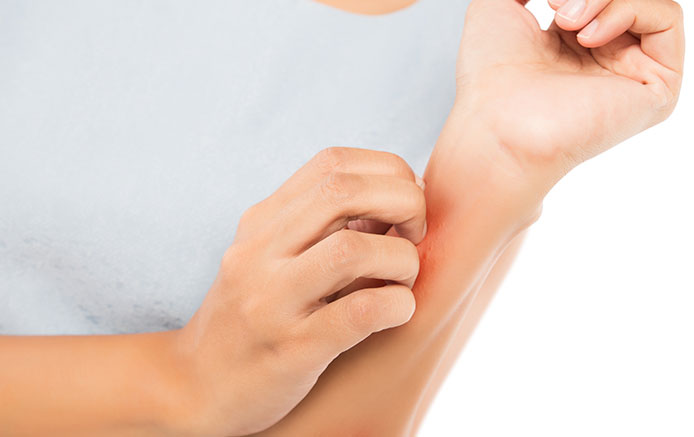
SERVICES
Atopic Eczema
What is atopic eczema?
Atopic eczema, also called atopic dermatitis, is a type of eczema that generally starts in childhood and often gets milder or goes away during adulthood. However, it may occur at any age. Atopic dermatitis is long-lasting and leads to one flaring periodically. It makes the skin itchy and red and may be accompanied by asthma or hay fever. Atopic eczema occurs when the skin's natural barrier is weakened, lowering its ability to protect against irritants and allergens.
The cause of atopic eczema is not known; however, it is believed that genes play a huge role in the condition’s development. Other factors may include dry skin and immune system problems and specific triggers in the environment.
Symptoms of atopic eczema vary from person to person. In infants, symptoms may include red, crusted, scaly areas on the cheeks, scalp, or the front of the arms and legs. In older children and adults, symptoms of atopic eczema may include:
- Dry skin
- Itching that may be severe, especially at night
- Small bumps that may leak fluid when scratched
- Darkening of the skin around the eyes
- Cracked skin that hurts and bleeds at times
- Skin creasing on the palms of the hand or under the eye
Seek medical attention if the condition affects sleep and daily activities and if the skin has an infection.
How is atopic eczema treated?
Atopic eczema treatment is aimed at managing the symptoms of eczema. Dr Zinzi Limba may recommend the following:
Corticosteroid creams or tablets
This helps relieve itching and inflammation.
Antibiotics
Barrier repair moisturisers reduce water loss and repair the skin.
Topical calcineurin inhibitors
These creams/ointments help suppress inflammation to reduce symptoms.
Phototherapy
This is an ultraviolet (UV) light therapy that is typically recommended for patients with severe eczema. This light helps reduce itchiness and inflammation and helps the skin fight bacteria to prevent infection.
FAQ:
What are the common complications of atopic eczema?
Common complications of atopic eczema include asthma, hay fever, and skin infections.
Can atopic eczema be prevented?
Atopic eczema may be prevented by moisturising the skin daily with rich, oil-based cream or ointment, gently blotting the skin with a soft towel after bathing, and using fragrance-free detergents and cleansers, makeup, and other skincare products.
Can female hormones increase atopic eczema symptoms?
Females may experience increased atopic eczema symptoms, especially when the hormone levels are changing, like during pregnancy and at specific points during the menstrual cycle.

